Grandin to inspire people with stories
Despite not talking until she was 3 years old and the belief that she would not grow up to be successful, Temple Grandin is one of the top animal-handling-machine designers in the world.
Grandin was diagnosed with autism in 1950, and she will be sharing her experiences, beliefs and advice at 7 p.m. Thursday in the Doudna Fine Arts Center.
The speech will be in the Dvorak Concert Hall with live streaming to the Doudna Lecture Hall, which are sold out. Streaming will also be available in the Black Box Theatre.
Gail Richard, the communication disorders and sciences department chairwoman, said Grandin has a Ph.D. in animal science from the University of Illinois at Urbana-Champaign.
“Grandin was born in an era where there were a lot of misconception about autism and what is was,” Richard said. “Her mother was very instrumental in giving her opportunities and keeping her in regular education.”
Richard said Grandin’s teachers, who recognized her talents, helped her build them.
“I think she had a lot of people who mentored her along the way,” Richard said.
Despite her shyness, Grandin travels and promotes autism awareness through her life story.
“She wants to make a difference,” Richard said. “She talks about how she wants to know she has made a difference in the world.”
Richard said Grandin offers insight to the disorder that helps parents and professionals understand why some of the characteristics might be there and help those individuals reach their own potential.
“One of the questions she was asked once was if designing slaughter facilities was kind of contradictory,” Richard said. “Her answer was ‘no that if we do it in a humane way as opposed to a cruel way, then that is an improvement.”’
She said Grandin is one of the few people who design these facilities in an efficient and humane way.
Richard said to understand Grandin’s experiences, people need to understand what autism is.
“The term autism means ‘alone’ literally,” Richard said. “The primary characteristic of autism is that the individuals are in their own world or socially isolated, and they have difficulty relating to other people and the environment.”
Richard said another common characteristic is sensory overload, resulting in sensitivity to sights, sounds, smells and textures.
“Temple tells some great stories about some of her sensory overload,” Richard said. “She’ll talk about certain clothing that was very itchy and like sandpaper.”
Richard said this is why most people with autism will stay where they are comfortable.
“In their own world, they are very comfortable, but when they come out into our world, there is all this stimuli that hits them—sounds and smells, visuals,” Richard said. “That is when they get overwhelmed and when we start seeing all the behavior because they are trying to block out all the things that are disruptive to them.”
Richard said Grandin might talk about her job designing animal slaughterhouses.
The department of communication disorders and sciences will be showing “Temple Grandin” a film based on her life. The film will be shown at 7 p.m. Tuesday in the Buzzard Hall Auditorium.
All the money from the speech will go to benefit the Autism Resource Center at Eastern.
This center is small, but Richard said she hopes to use the money to expand it so those around Charleston and surrounding areas will have a closer resource available.
The center will provide evaluation, consultation and education about autism.
Richard said Grandin wants people to know she is not cured of autism but has learned to moderate her actions.
Richard said autism is genetically coded so people are born with it and will die with it.
“When people imply that Temple is cured, she will say, ‘I am not cured. I continue to work very hard at this,’” Richard said.
Richard said Grandin is a great role model for autistic people.
“She wants other people to hear her story so that it’ll inspire them as a person with autism or a parent of a child with autism to not give up and buy into the stereotypes,” Richard said.
Samantha McDaniel can be reached at 581-2812 or slmcdaniel@eiu.edu.

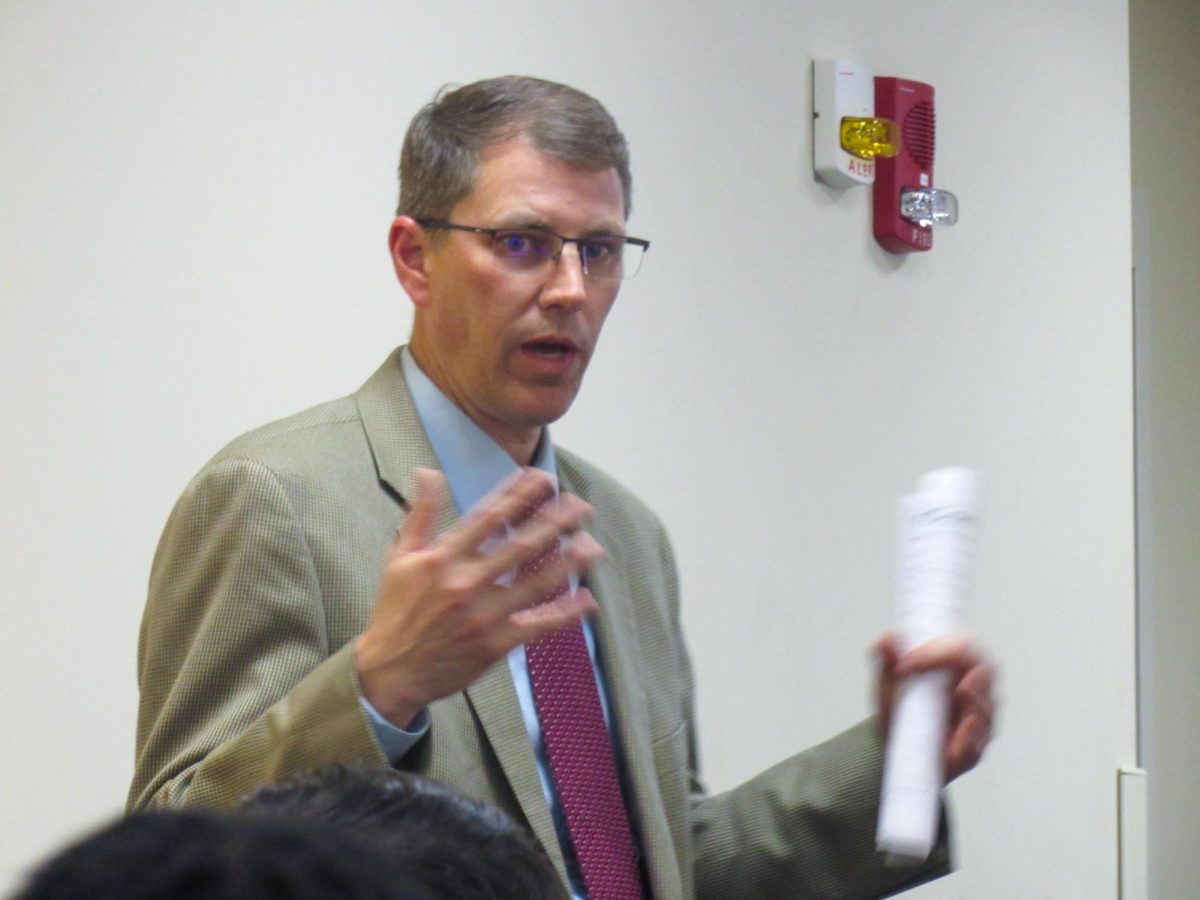
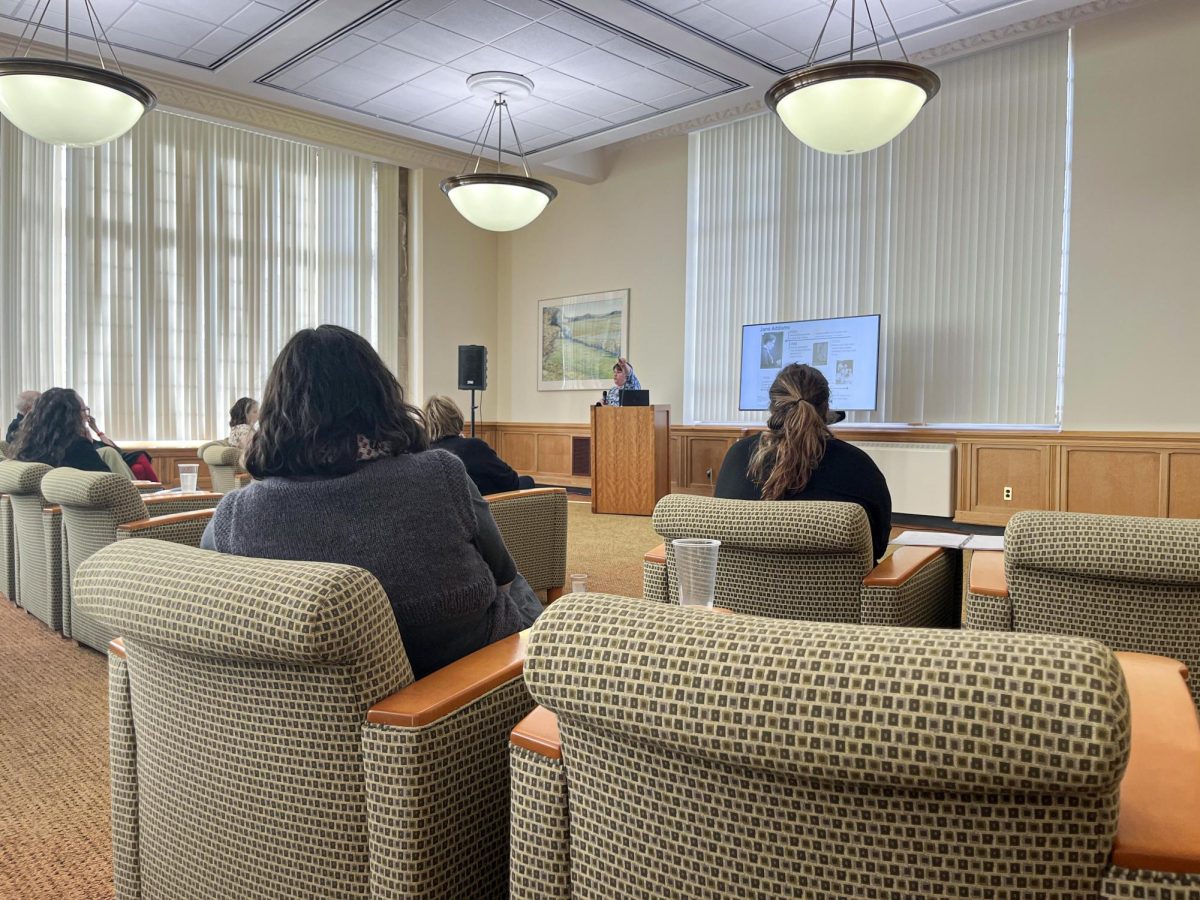


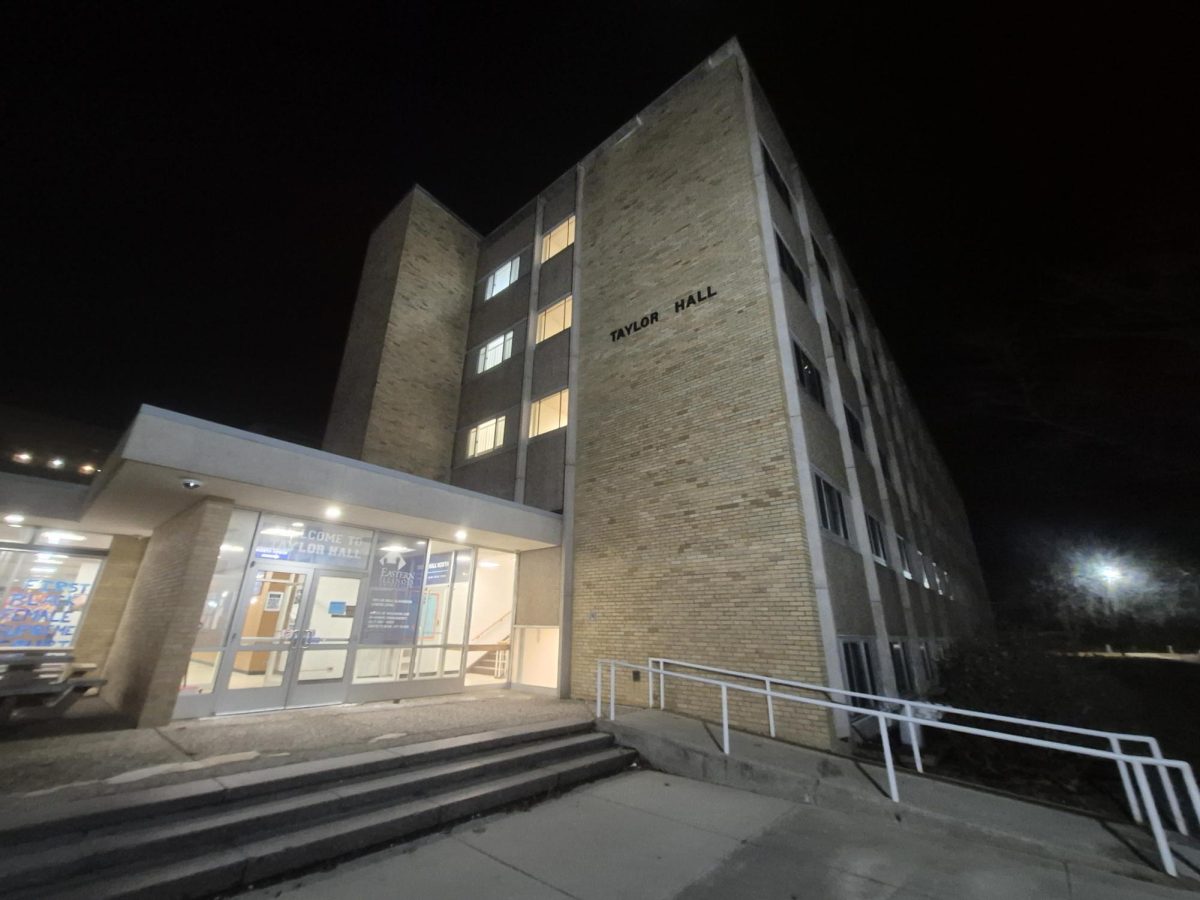


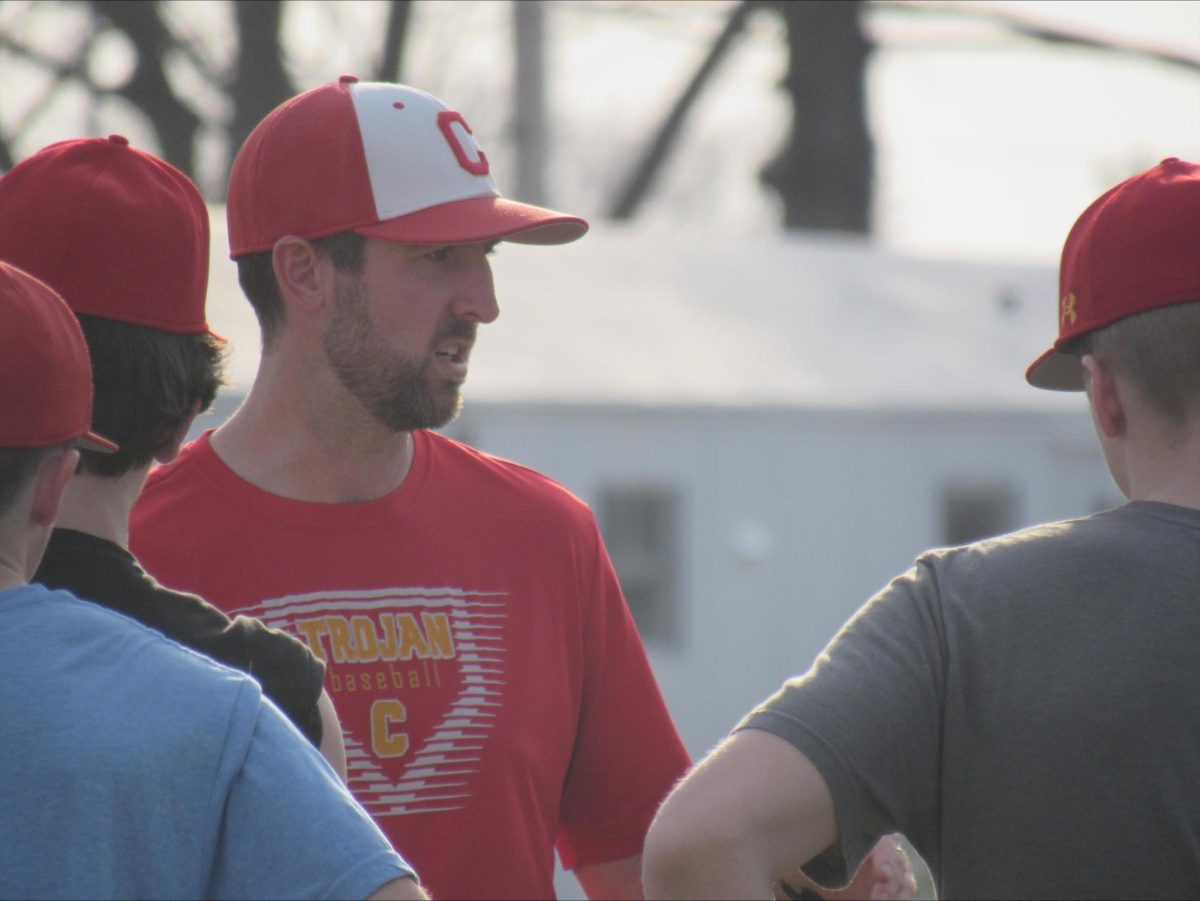
![[Thumbnail Edition] Eastern Illinois University baseball's hitting coach and recruiting coordinator Mike Pugliese urges players on the team to increase their effort after a slow start to its pregame routine at the team's first intrasquad scrimmage of the season at O'Brien Field on Jan. 31, 2025.](https://www.dailyeasternnews.com/wp-content/uploads/2025/03/BB_02_O-1-e1741909628540-1200x702.jpg)
![[Thumbnail Edition] Senior tennis player Luisa Renovales Salazar hits the tennis ball with her racket at the Darling Courts at the Eastern Illinois University campus in Charleston, ILL.](https://www.dailyeasternnews.com/wp-content/uploads/2025/03/Tennis_01_O-1-e1741807434552-1200x670.jpg)
![[Thumbnail Edition] Senior right-handed pitcher Tyler Conklin pitching in the Eastern Illinois University baseball team's intrasquad scrimmage at O'Brien Field in Charleston, Illinois on Jan. 31.](https://www.dailyeasternnews.com/wp-content/uploads/2025/03/TC_01_O-e1741567955534-1200x669.jpg)




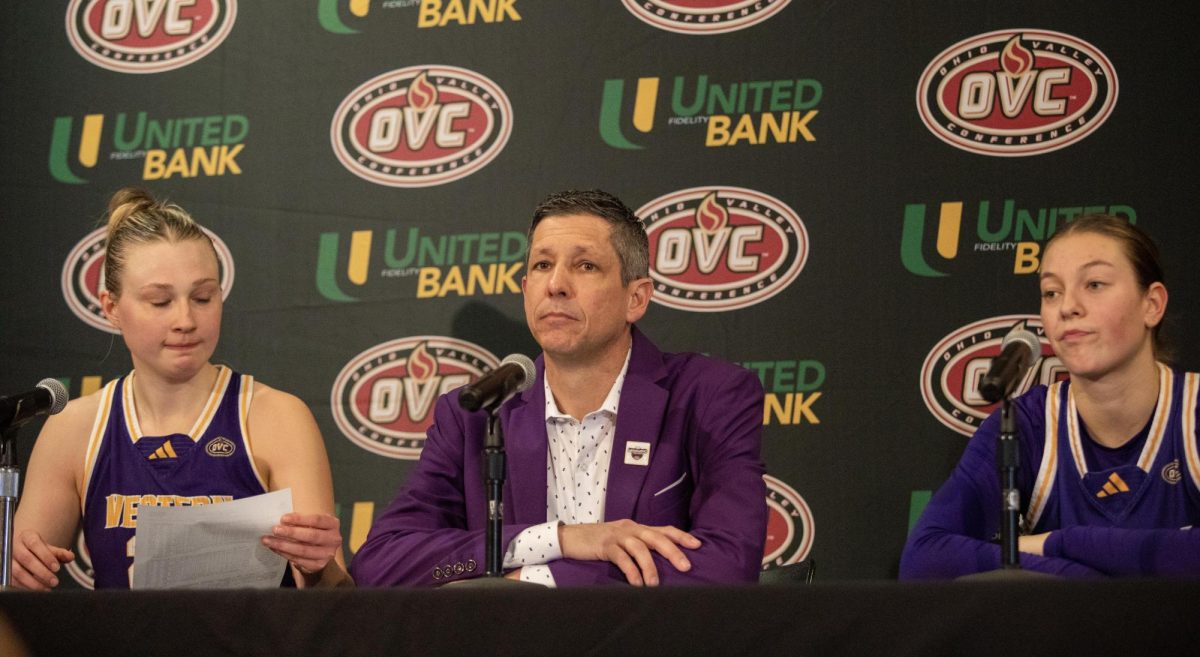
![[Thumbnail Edition] Senior, forward Macy McGlone finds an open teammate to pass the ball too during the game against the Tennessee State Tigers 69-49, in Groniger Arena on the Eastern Illinois University campus, Charleston Ill.](https://www.dailyeasternnews.com/wp-content/uploads/2025/03/WBB_02_O-1-e1741228987440-1200x692.jpg)


















![E[Thumbnail Edition] Eastern Illinois softball freshman utility player Abbi Hatton deciding to throw the softball to home plate in a fielding drill during softball practice at the field house in Groniger arena on Tuesday Feb. 11.](https://www.dailyeasternnews.com/wp-content/uploads/2025/03/SB_03_O-e1741208880750-1-e1741209739187-1200x815.jpg)

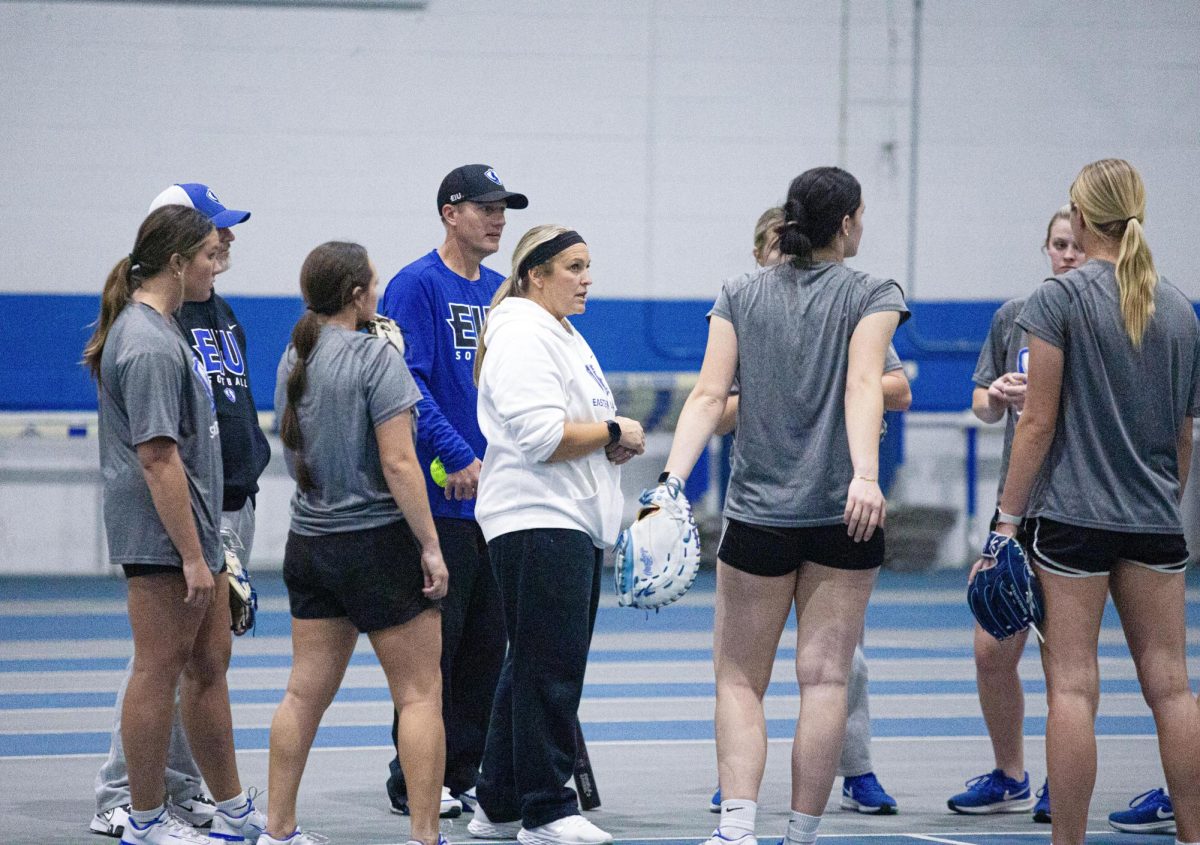













![The Weeklings lead guitarist John Merjave [Left] and guitarist Bob Burger [Right] perform "I Am the Walrus" at The Weeklings Beatles Bash concert in the Dvorak Concert Hall on Saturday.](https://www.dailyeasternnews.com/wp-content/uploads/2025/03/WL_01_O-1200x900.jpg)
![The team listens as its captain Patience Cox [Number 25] lectures to them about what's appropriate to talk about through practice during "The Wolves" on Thursday, March 6, in the Black Box Theatre in the Doudna Fine Arts Center in Charleston, Ill.](https://www.dailyeasternnews.com/wp-content/uploads/2025/03/WolvesPre-12-1200x800.jpg)
















